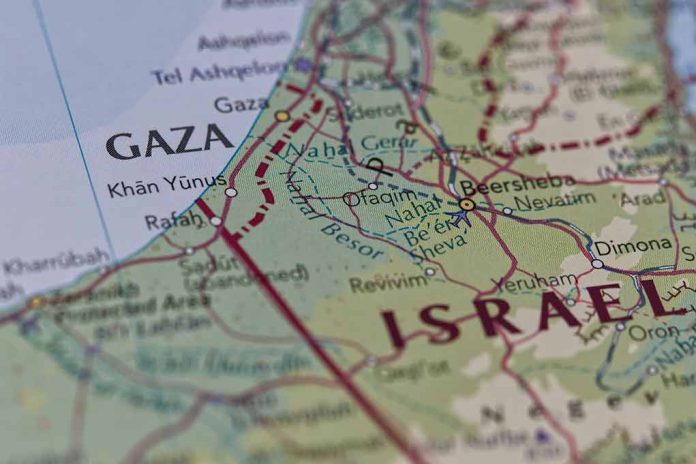
The U.S. response to Israel’s conflict with Hezbollah highlights strategic decisions poised to affect regional stability and international alliances.
At a Glance
- Significant risk of conflict escalation into all-out war involving multiple countries.
- Increased scale and geographic scope of violence between Israel and Hezbollah.
- U.S. diplomatic efforts crucial to prevent a wider Middle Eastern conflict.
- Hezbollah’s substantial military capabilities present a persistent threat to Israel.
Rising Tensions Between Israel and Hezbollah
The ongoing conflict between Israel and Hezbollah presents a severe risk of escalating into a broader regional war involving multiple countries such as Iran, Syria, and Iraq. The intensity and geographical range of the violence have expanded significantly, with incidents recorded 4.5 times higher than in the previous year according to CSIS. This increase underscores the potential for the situation to evolve into a more widespread conflict.
Israeli operations have intensified under Operation Northern Arrows, focusing on targets deep within Hezbollah-controlled territories. Notable is the assassination of the Hezbollah leader, Hassan Nasrallah, which marks a pivotal escalation. Cross-border operations by Israel have included the mobilization of reserve brigades, positioning for a potential ground invasion. These military actions are mirrored by Iran’s direct involvement, launching ballistic missiles at Israeli targets amid the rising tensions in the region.
U.S. Involvement and Diplomatic Efforts
Amidst the escalating situation, the United States’ approach involves diplomatic initiatives aimed at mitigating the chances of a full-scale war. Emphasizing preventative strategies, the U.S. has urged key stakeholders to reduce hostilities, emphasizing the dire repercussions of a broader Middle Eastern conflict, as outlined here. The close diplomatic ties between the U.S. and Israel play a crucial role in deterring an immediate expansion of military engagements.
Potential scenarios considered include an Israeli ground invasion, a comprehensive air war, and further retaliatory actions by Hezbollah. Each carries significant risks, not only for the Israeli and Lebanese territories directly involved but also potentially dragging in adjacent states, escalating regional instability. Hezbollah’s robust military posture, with a reported stockpiling of over 150,000 weapons, continues to pose a substantial threat to Israeli security, complicating diplomatic efforts.
The Strategic Implications
Hezbollah’s strategic positioning in Lebanon provides them with a logistical advantage, enabling rapid deployment and sustained defenses, constituting a significant obstacle for any opposing forces. The repercussions of further escalation are profound, with widespread humanitarian consequences, including significant displacement and loss of life on both sides as noted in various analyses.
The region remains on high alert as strategic military moves on both sides escalate tensions. The U.S. continues to play a mediating role, with its diplomatic engagement essential to curbing the prospect of an intensified military confrontation. As regional dynamics evolve, concerted international efforts remain pivotal to averting a catastrophic escalation across the Middle East.
Sources:
Escalating to War between Israel, Hezbollah, and Iran
The Coming Conflict with Hezbollah
Israel and Hamas Conflict In Brief: Overview,
U.S. Policy, and Options for Congress
How the U.S.-Israel Relationship Actually Works
The U.S. Should Prevent All-out Israeli-Hizbollah War













